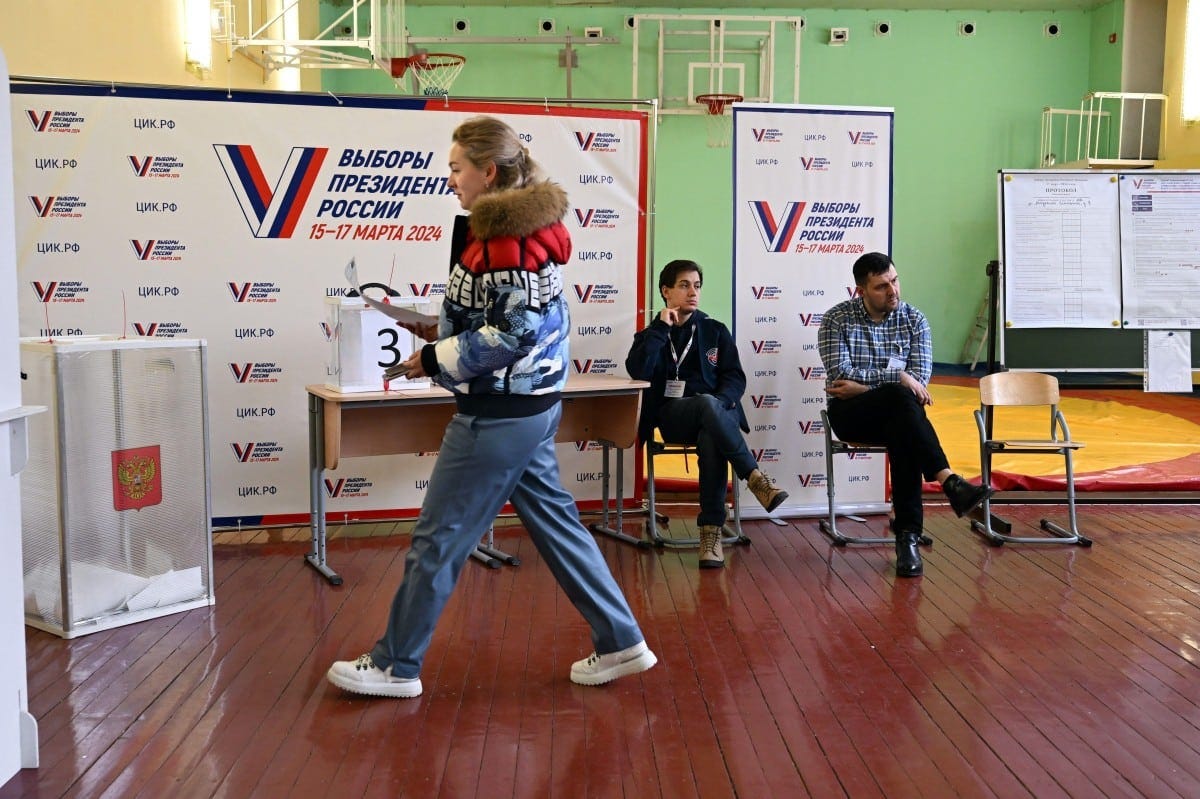How popular is Putin in Russia?
While the outcome of the sham election is already settled, this is still a timely opportunity to ask the question: does Putin enjoy popular support at home?
Russians have started heading to the polls in an election which is all but certain to extend Putin’s iron grip on power into the next decade.
Over 114 million Russians, across the country’s 11 time zones, are eligible to vote. But it’s a sham vote that carries no prospect of removing their 71-year-old President – who has ruled for the entirety of the 21st century – from office.
Putin refuses to let any meaningful opposition stand against him. And, by now, the Kremlin’s most ardent critics are either living in exile, locked up or dead.
Tim Marshall writes in Reaction today that the other three candidates on the ballot papers have been allowed to stand “as tame pretend opponents to give the semblance of a democratic vote.” As evidenced in the Communist Party candidate Nikolai Kharitonov’s almost comical refusal to talk himself up during an interview with the BBC’s Steve Rosenberg.
“Why do you think you’d be a better president than Putin?” Rosenberg asked him. “It’s not for me to say. That wouldn’t be right,” Kharitonov replied.
While the election outcome is settled, this is still a timely opportunity to ask the question: just how popular is Putin at home?
Gauging popular opinion is notoriously difficult in Russia. Independent pollsters operate under strict surveillance, and even in a legitimate survey, many are fearful to criticise the Kremlin. Even so, if this was a fair vote, he would likely still win. Putin appears to enjoy genuine popular support. Which is perhaps unsurprising given the endless flow of pro-Kremlin propaganda pumped out on state-controlled media.
What’s more, despite Putin’s failure to execute a short victorious war in Ukraine, Putin’s so-called “Special Military Operation” still seems to have boosted his domestic popularity.
Polling from the respected Levada Center in Moscow puts current public trust in the Russian President at a whopping 86 per cent. That’s up from 71 per cent shortly prior to the full-scale invasion of Ukraine, when a hike in the retirement age and Covid restrictions had dented his popularity.
The last time Putin was enjoying approval ratings as high as his current ones was following his 2014 annexation of Crimea. The Crimea grab boosted his popularity ratings for several years. And, similarly back then, he launched the invasion at a moment when his domestic support – while still high – had dipped. Polls also indicate that Russia’s 2008 invasion of Georgia gave his popularity ratings a boost.
Helpfully for the Kremlin, Moscow’s economy has also proven surprisingly resilient to Western sanctions. While there are caveats to Russia’s rosy GDP figures, the country’s economy has managed to bounce back to pre-war levels, growing by 3.6 per cent last year.
This is not to say that small pockets of resistance don’t still exist.
A number of protesters have been arrested today for vandalising ballot boxes. In Moscow, Voronezh in south Russia, and the region of Karachay-Cherkessia in the north Caucasus, some boxes were burnt while others had green dye poured in them.
As for war critics, The Conversation recently profiled The Way Home campaign group, set up by wives of Russian soldiers. While these women haven’t directly criticised the invasion of Ukraine, they have, since January, gathered every Saturday in Moscow, holding banners calling for an end to mobilisation.
Anti-war candidate Boris Nadezhdin also managed to garner tens of thousands of signatures of support ahead of this weekend’s election (before, inevitably, being barred from running by the electoral commission). Nadezhdin has been keen to highlight other poll findings, which shouldn’t be overlooked. When asked by Levada pollsters if they supported the war in Ukraine, three quarters of Russians said they mostly did. However, in the same poll, over half said they would prefer to proceed to peace negotiations rather than continue military action.
So, while Putin’s popularity may be higher now than it was prior to his full-scale invasion of Ukraine, that doesn’t neccesarily mean that his strategy of waging a “forever war” in Ukraine is a popular one. Not that this will make much difference to the weekend’s election outcome. Putin will still win with a stonking majority, and will do his best to make any critic feel like an outcast.
Write to us with your comments to be considered for publication at letters@reaction.life



